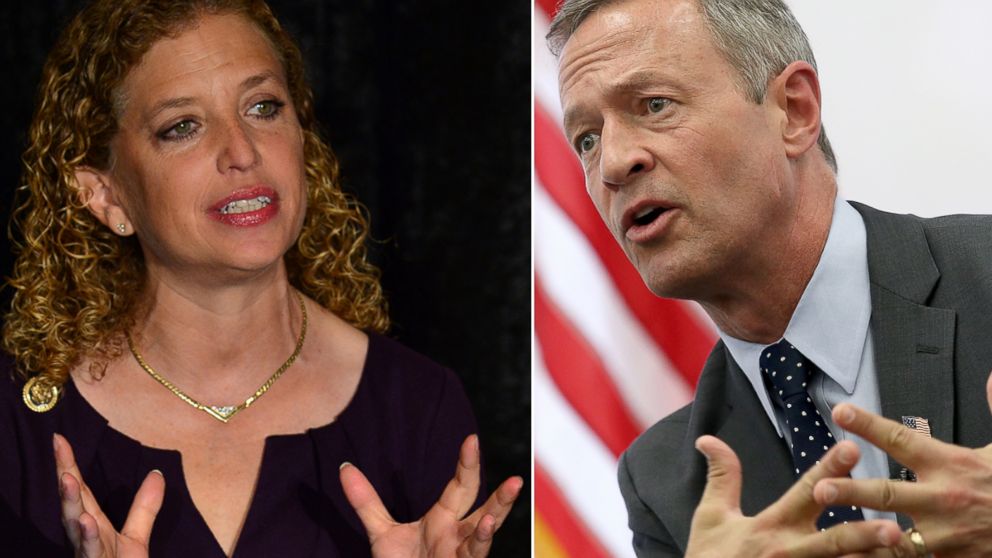Why Some Democrats Aren't Giving Up on More Debates
A group of Democrats are planning a protest at Democratic Party headquarters.

— -- As Republican presidential hopefuls gather for their second nationally televised debate in California, across the country this evening a group of Democrats are planning a protest in front of the Democratic Party headquarters in Washington, D.C., over the number of debates allowed for their candidates.
“There is a reason debates have been a central feature of democracy since ancient Greece,” Ben Doernberg, founder of a group called “Allow Debate,” which is organizing the protest, said in an interview with ABC News. “Democrats are excited about their candidates this year. It is a huge mistake to give the stage over to Republicans.”
Doernberg said his group plans to present the Democratic National Committee with a petition signed by over 20,000 people. They are also bringing their guitars for a special rendition of this song written by one of the volunteers, encouraging people to call the DNC and ask for more debates.
The DNC has sanctioned six debates this election cycle. While it is the same number the committee sanctioned in the past, unlike previously years, the DNC this time is promising to disinvite candidates who participate in non-sanctioned debates. This so called “exclusivity clause” has frustrated those who believe more debates are needed.
So far, Maryland Gov. Martin O’Malley has been the public face of the issue. Struggling in the polls, O’Malley used his time at the DNC’s summer meeting to rail against the party’s debate schedule, calling it “unprecedented” and evident of a “rigged process.” Doernberg said the issue is resonating with grassroots voters, too. He first heard about the limited number of debates on a presidential candidate Bernie Sanders' Reddit page and started making calls to the DNC.
Months later, he has become as frustrated with the power structure in the party as the debates themselves. “It was really a shock to realize that on this issue the DNC is a dictatorship,” Doernberg said.
Despite calls from two vice chairs of the party and several local leaders, party Chairwoman Debbie Wassermann Schultz so far has stood firm in her decision, saying the rules are necessary to keep the schedule under control and protect the candidates.
Lou D’Allesandro is a Democratic state senator from Manchester, New Hampshire, supporting Hillary Clinton. He co-authored an op-ed in the Union Leader newspaper calling for more debates. “I disagree with Debbie Wasserman Schultz,” D’Allesandro told ABC News. “She may be the head of the party, and I’m just one man. But I’ve been around, perhaps longer than her ... and we need this.”
Allow Debate promises to keep fighting through the primary season. “She thinks this issue is going to go away,” Doernberg said, referring to Wassermann Schultz. “She thinks if she can make it to the first debate in October, people will give up and acquiesce. That’s not going to happen.”
“Six debates is maybe two questions on climate change, maybe three,” he continued. “It is just not enough if you care deeply about an issue and want to understand where the candidates differ.”
The DNC is encouraging candidates to participate in issue-based forums and argues that debates may not be the most effective way to reach voters.
ABC News' Brad Mielke contributed to this report.



